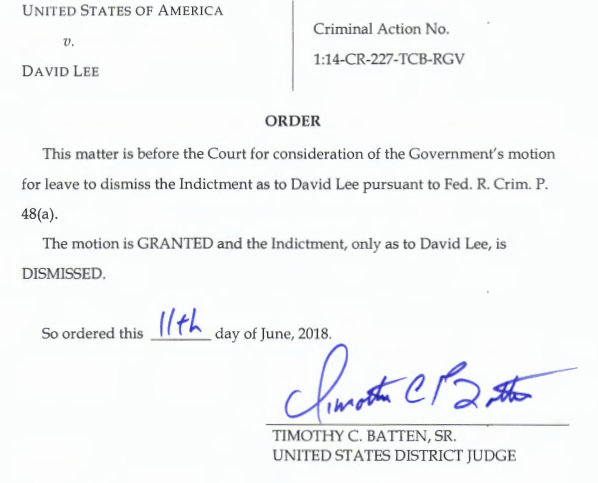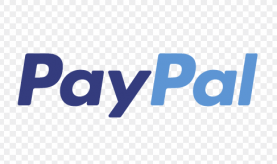 The UK has some of the toughest intellectual property legislation to be found anywhere in the world and rightsholders have plenty of options available, from civil action through to criminal referrals.
The UK has some of the toughest intellectual property legislation to be found anywhere in the world and rightsholders have plenty of options available, from civil action through to criminal referrals.
For the past several years the government has also shown a willingness to engage with the private sector in respect of online piracy. It has provided funding and resources to initiatives including the Police Intellectual Property Crime Unit and the multi-faceted Operation Creative, a commitment that looks set to continue.
At the heart of many of these matters sits the Intellectual Property Office (IPO), the government department responsible for copyrights, trademarks, patents and designs. This week the IPO published two documents, one detailing its corporate plan for 2018-2019 and the other outlining its overall strategy to 2021. Both contain statements relating to online copyright enforcement.
“IP matters. It touches everything that makes modern life, easier, safer, prosperous and more enjoyable,” the IPO Strategy 2018 report begins.
“Our work gives researchers, inventors and creators, whether as individuals or businesses, the confidence to invest their time, energy and money in doing something new and making life better.”
The IPO says its aim is to help the UK become the most creative and innovative country in the world by providing excellent IP services, a world-leading IP environment, and by making the IPO itself a great place to work. Much of the information in the reports focuses on how that progress will be made in the broader sense, including via the reduction of IP crime and infringement.
The IPO believes this can be achieved in a number of ways, including by investing in enforcement and improving access to enforcement options for rights holders. Investment in intelligence and an increased capacity for strategic leadership are foreseen, in addition to spending boosts to convince everyone that infringement is unacceptable.
“We will work towards a time where infringement is seen as socially unacceptable by all,” the IPO writes.
Periodically over the past couple of years, the government has stepped into the middle of disputes between rightsholders and Internet intermediaries, suggesting that if agreements to curb piracy aren’t reached, legislation could follow.
The IPO sees this kind of work continuing over the next couple of years with an offer to “broker greater engagement from online intermediaries in the fight against infringement and IP crime.”
The IPO Corporate Plan 2018-2019 touches on similar issues, promising to ensure that appropriate resources are available to deliver on promises made as part of the government’s enforcement strategy.
“Reducing IP crime requires a multi-faceted approach. The UK is already a world leader in the enforcement of IP. We want to build upon what we are doing to create a paradigm shift around infringement,” the IPO writes.
“Before we can make this happen we need to improve our knowledge around consumer understanding of IP crime and infringement and what works to change behavior in this space. We need to understand the strengths and challenges of our enforcement approach, continue to invest in education and intelligence, and maintain and increase our capacity to lead.”
The IPO says it will consider if there are ways to reduce the costs of enforcement for rights holders, such as reducing the time taken to bring a matter to court and reducing costs once there.
The Office also wants to consider the possibility of more administrative approaches, including “administrative blocking injunctions”, something which it hopes to understand the “pros and cons” of by March 2019. But the plans don’t stop there.
“We will work with the Department for Digital, Culture, Media & Sport [DCMS] and industry to support the proposed program of roundtable discussions outlined in the Creative Industries’ Sector Deal.
“A key aspect will be ensuring they are used effectively to assess the evidence for, and where appropriate, to agree future action to tackle the infringement of IP rights online,” the IPO notes.
In conjunction with industry, the IPO hopes to develop “voluntary measures” to target online marketplaces, social media, and digital advertising, while continuing to co-fund the Creative Content UK (CCUK) educational campaign in conjunction with DCMS.
“To begin the work towards making the infringement of IP socially unacceptable, we need a better view of consumer attitudes to IP crime and what messaging changes behavior.
“We know that behavioral change is long-term and never easy, but we want to secure general cultural change where respecting IP is seen as the right thing to do. This work will link up with the messaging on IP’s economic and career impact,” the IPO concludes.
—
The IPO Strategy 2018 report can be found here (pdf)
The IPO Corporate Plan 2018-2019 can be found here (pdf)
Source: TF, for the latest info on copyright, file-sharing, torrent sites and more. We also have VPN reviews, discounts, offers and coupons.

 Assisted by police in France and the Netherlands, the FBI took down the “pirate” Android stores Appbucket, Applanet, and SnappzMarket during the summer of 2012.
Assisted by police in France and the Netherlands, the FBI took down the “pirate” Android stores Appbucket, Applanet, and SnappzMarket during the summer of 2012.

 Founded around the turn of the last century,
Founded around the turn of the last century, 
 Frustrated by thousands of cheaters who wreak havoc in Fortnite’s “Battle Royale,” game publisher
Frustrated by thousands of cheaters who wreak havoc in Fortnite’s “Battle Royale,” game publisher 